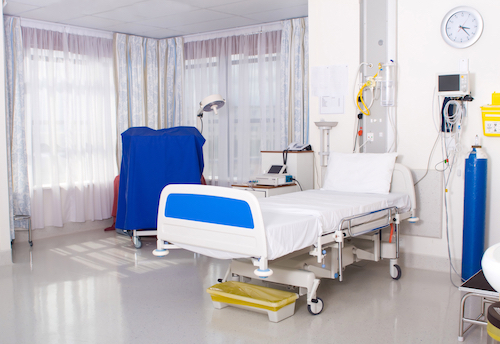Austria’s Krankenkasse system means that all basic health procedures, as well as emergency care, are covered by the state. You will not need to pay any costs upfront and you won’t be charged for most healthcare.However, some expats still choose to take out supplementary health insurance in Austria, either to speed up wait times or to give them more flexibility in choice of practitioners. If you do take out health insurance, then the amount you have to pay for each procedure will depend on your premiums.
A small percentage of expats will find they that are not eligible for state health cover. This includes some students and part-time employees. If you are not working in Austria, are not a dependent of an Austrian resident, and you do not have a residence permit yourself, then you will not be eligible for state healthcare and you will therefore need to sort out private health insurance for yourself.
Why Do People Take Out Health Insurance In Austria?
Considering that the state funds all necessary treatments, it might come as a surprise that there is a health insurance market in Austria at all. Most people who take out private health insurance do so for added comforts: for example, upgrading to a single room during a hospital stay, or paying for transport to and from a medical facility.

Just under a quarter of people take out private health insurance, partly because it allows a higher range of choice of medical practitioners to visit. Some doctors and specialists are not covered by state healthcare.
Self-employed people often take out insurance that covers them in the event of hospital stays, since this will usually also cover inability to work, which can be problematic if you are not employed by a company that has a sick pay policy.
Out-Of-Pocket Costs In Austria
The most common out-of-pocket costs for residents in Austria are for over-the-counter medications from pharmacists, and for supplementary dental care. Medical appliances such as mobility aids are another source of out-of-pocket costs for Austrian residents.
Although the state health system is required to provide all residents with the healthcare they need, sometimes the amount of time it takes to be diagnosed with a given condition means that expats begin self-medicating before they are seen by a specialist.
In these cases, it can be helpful to have private health insurance on a cost-sharing basis, in which your insurer pays a certain amount of the out-of-pocket charges. If you have a history of complex comorbid health conditions that may require extra time for diagnosis, then taking out health insurance will probably save you money in the long run and might give you some added peace of mind.

Most of the direct out-of-pocket payments that are not reimbursed by either the state or health insurers in Austria are related to visits to private specialists, including dentists. Nursing and residential care, including respite facilities, also make up a big chunk of this expenditure.
If you are moving to Austria with dependents who may require respite or full-time residential care in the near future, then taking out a health insurance package that partially covers this before the need arises is a prudent course of action. Often insurers will not cover pre-existing needs, so the more you can think ahead to what you and your family might require in the future, the more likely you are to find the right level of cover.
Mobility Aids
Mobility aids such as wheelchairs and walking sticks are some of the most popular out-of-pocket costs for people living in Austria. If your doctor decides that you require a mobility aid then they will give you one free of charge, however many people opt to upgrade their mobility aids — for example, switching a manual wheelchair for an electric one to make it easier to get around, or buying a walking stick that can be folded up and placed inside a handbag.
Costs for mobility aids in Austria are in line with those in other EU countries, and they should not be too hard to find: many of them can be bought on Amazon, for instance. A basic manual wheelchair will usually cost between €100-300, with electric versions beginning at around €2,000. If you require any special modifications then these costs can quickly add up.

Walking sticks are much less expensive and will usually only set you back between €10-30, so some people choose not to claim these on their insurance as they are often one-off costs.
There are also a number of companies that allow you to rent mobility aids for short periods of time. If you have had an operation or sustained an injury that makes it difficult to get around, but you still want or need to be out and about independently, then this might be a useful option. Costs differ depending on the provider, but are generally between €25 and €50 per day, and they usually require a deposit of up to €150, which will be refunded when you return the wheelchair.
Dental Costs In Austria
Most dental treatment will be covered by your state health insurance, however if you want to visit a specific dentist, or if you want to pay for a treatment that falls outside of the basic cover, then you might need to pay out of pocket.
A visit to a private dentist in a top surgery could cost up to €250 just for a consultation, so make sure you have done your research into pricing before you book an appointment. Paying privately for fillings usually costs between €50 and €100 per filling, and adding optional extras such as specific colouring or plating will increase this amount. A white, porcelain-plated crown can set you back up to €400.

When deciding whether to make do with the state health insurance; opt for private cover; or just to pay out-of-pocket for any healthcare needs, you will need to weigh up how many of your medical requirements fall under the category of ‘necessary’ as defined by the state doctors.
One-off payments for items such as walking sticks or over-the-counter medications are generally not too high, but if you need specialised items or you require a lot of supplemental medication then it would be worth checking with an insurer to see whether you can find a premium that suits you.
Would you like to share your experience of life abroad with other readers? Answer the questions here to be featured in an interview!

